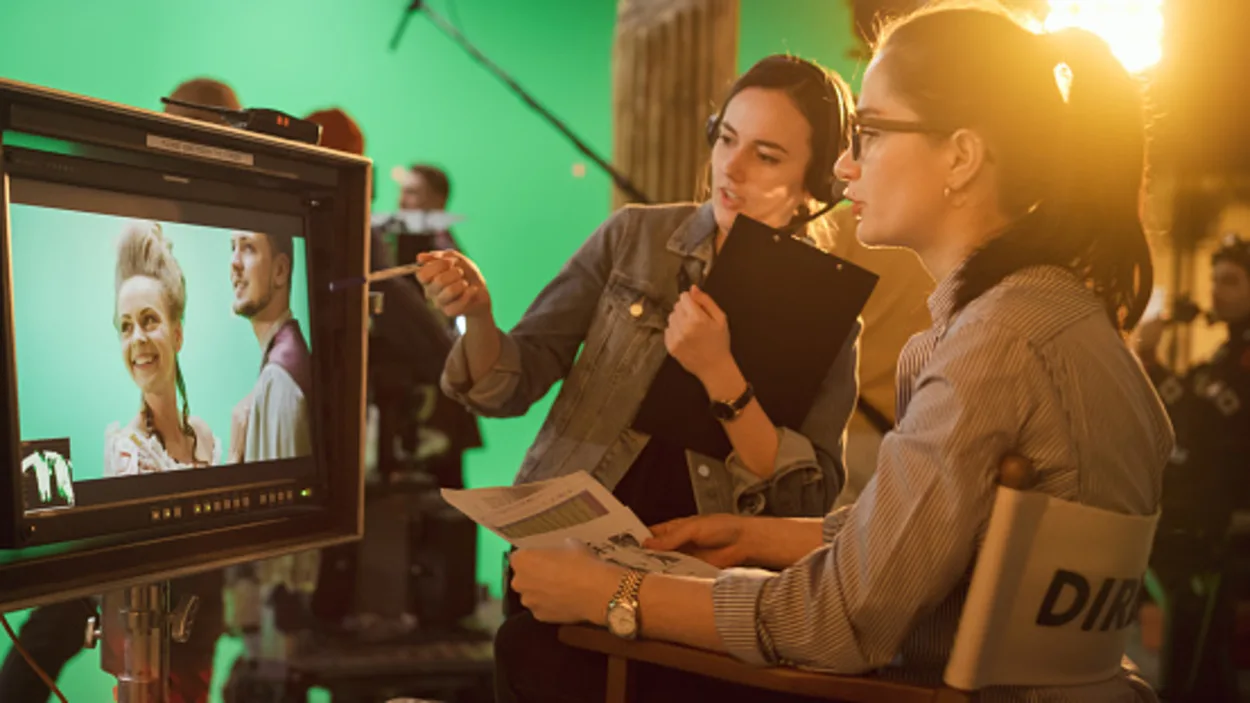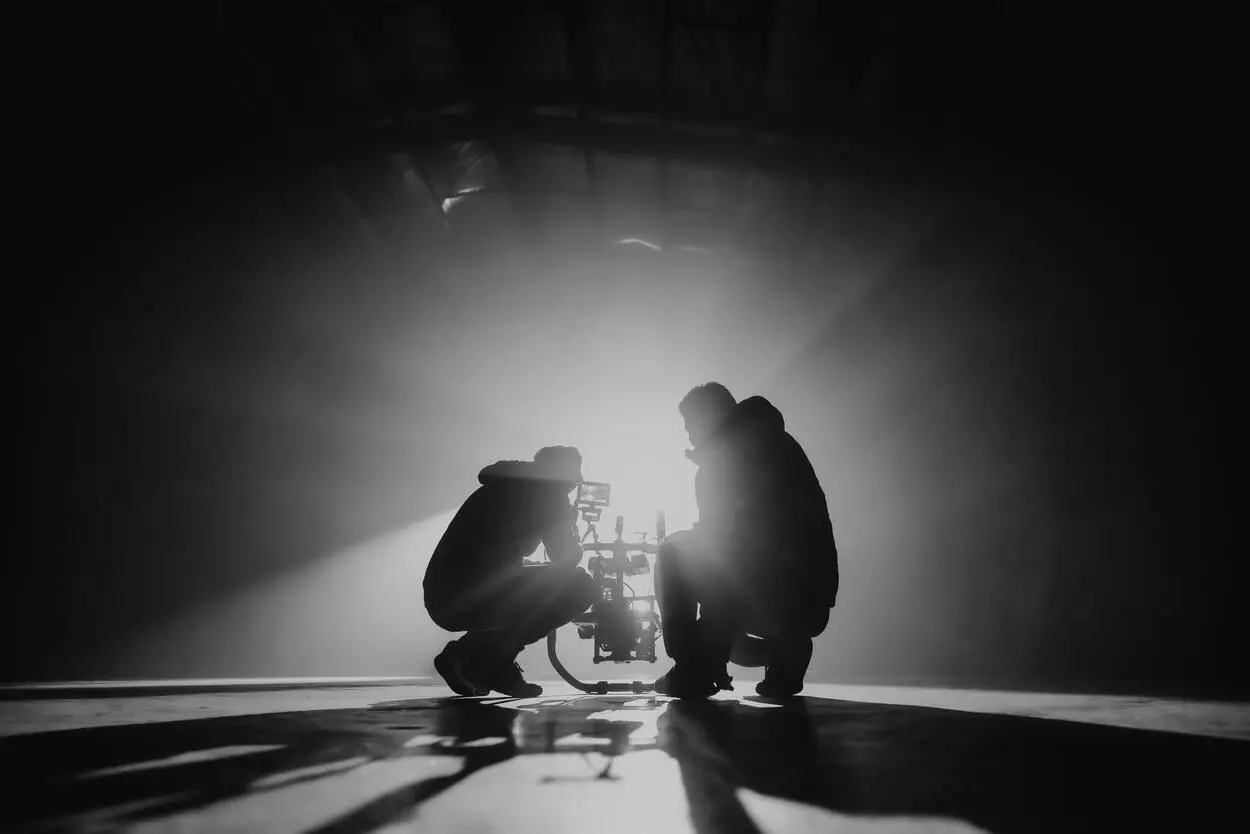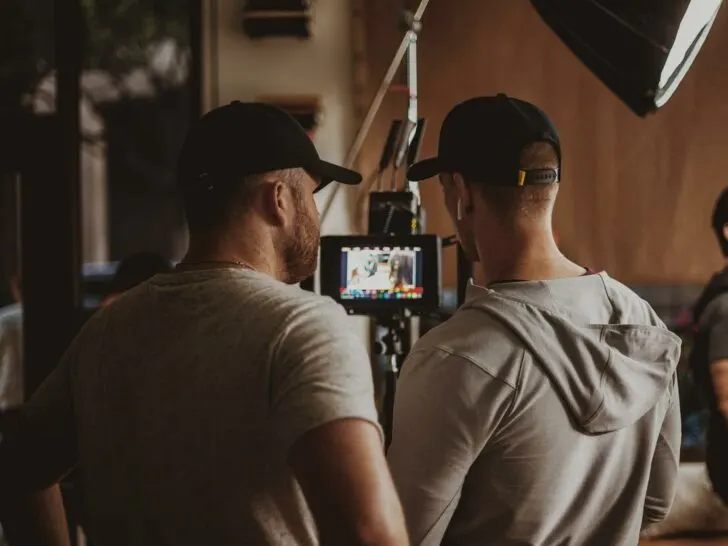A film’s Creative Lead is the Director. They direct the cast and crew, making choices as needed along the way.
Contrary to that, the producer is in charge of the entire production, which often includes raising funds. He hires everyone, while the director casts the actors and crucial crew.
As a result, the director (usually) directs on set, while the producer (typically) produces in an office. The director doesn’t engage with contractors or vendors, and the producer doesn’t communicate with the team on set.
The director is in charge of what happens on camera and how people act. However, the producer is usually not present, and if he’s, he’s just watching. He assists with larger administrative matters, such as recruiting and budgeting.
These are some of the significant roles of a director and a producer who is responsible for making a film.
In this blog, we’ll discuss the contrast between the roles of a director as well as a producer. Along with that some of the FAQs will also be addressed.
If you’re interested in knowing the differences between the roles of several people who’re involved in a movie, this is where you should be.
Let’s get started.
Directors Vs Producers; Their Roles
A movie director is someone who oversees the production of a film.
The director is in charge of the creative and dramatic elements of a film, as well as visualizing the script and directing the crew and performers to achieve that vision.
The director plays an important role in screenplay changes, casting, and production design prior to filming. He directs the cast and crew throughout filming to capture his or her vision on film.
Following filming, the director works on the film’s editing.
On the other hand, the producer is in charge of the film’s financing, production, marketing, and distribution, while the director is in charge of the creative concept.
Prior to filming, the producer plans and coordinates financing. The director oversees script selection and rewrites.
During filming, the producer oversees administration, payroll, and logistics; and after filming, the producer oversees the editing, music, special effects, marketing, and distribution.
Despite the director’s creative responsibility, the producer typically has the last say in the film’s final editing.
So, they both play a very significant role in making the film, from start to end.
What Is The Difference Between A Movie Director And A Producer In The Most Basic Sense?
In theory, the simplest distinction I can make is:
The position of director is a creative one. They’re ultimately responsible for all of the film’s creative decisions.
A financial position is that of a producer. They’re in charge of all the financial aspects that go into making a film.
These two resources frequently contradict one another.
In terms of creativity, it might be better for a film to do a $1 million reshoot of a sequence that isn’t quite right.
However, it may not be better for the picture monetarily because, in the end, all films must recoup their investment. There’s a lot of overlap in practice.
Good producers are aware of the creative side of things and collaborate with the director and others to make the greatest creative decisions possible.
Many directors are acutely aware of the financial implications of their choices, knowing that if the picture fails to generate money at the box office, they’ll have a much more difficult time securing funding for the next one. However, in general, this is the distinction between the roles.

Is There A Similarity Between The Roles Of A Director And A Producer?
Although both the director and the producer are involved in the production of a film, their roles are very different.
The director is the person who is in command of the numerous department heads in production. While, the director tells the makeup and costume department, the technical department, the cinematographer, and the cast what to do in their picture.
The producer is the person who funds the film; in some cases, the producer is also in charge of the project’s creation. He hires the cast and crew and negotiates with local and foreign government infrastructure on filming at specific locations.
In addition to that, he pays the cast and crew and decides how long a film will run, how long the filming will take, and when the film will be released to theatres by talking to film distributors.
Now you know, how apart their roles are?
In The Entertainment Industry, What Advantages Do The Producer Have?
Another advantage the producer has over the filmmaker is that they have the right of first refusal. A producer can hire or remove the director as well.
Producers come before directors in the entertainment industry’s hierarchy.
For example, in Kevin Costner’s passion project Water world, where he served as executive producer, he fired Water world director Kevin Reynolds (despite the fact that Reynolds was given full credit as director) because Reynolds’ direction contradicted Kevin Costner’s vision.
This is why most high-profile actors, such as Tom Cruise, Brad Pitt, and Will Smith, functioned as producers throughout the making of their films because one of the many abilities of a producer is deciding which sequences to include and which to exclude from a film.
Having the power of a producer ensures that a high-profile actor’s scenes in the film are precisely what they desired.
You may think about whether is it possible for directors to become producers after all of this?
The answer is yes. Because they don’t want a producer instructing them what to do, Hollywood’s most powerful directors are all producers of their own films.
Check out my other article on the difference between half and full SBS in movies next.
Is It Possible For The Producer To Also Be The Director?
They have a significant role in the entertainment industry. They’re the backbone of a film; without them, a movie’s idea cannot be enacted.
A director can be a producer as well or vice versa.
A producer is a supervisor who is in control of the entire production and oversees all areas of the movie. A producer is a boss who’s in charge of everything, including finance, budgeting, script development, hiring writers, directors, and other key crew members.
A director collaborates directly with the cinematographer, the actors, and the crew to make a film. The producer supervises the director, who is also the filmmaker.
The producer’s role is purely administrative. In terms of function, the director is inventive.
In most cases, a film has only one director and a slew of different producers.
The director’s job is to make creative decisions on dialogue, set décor, and setting, among other things.
Producers, on the other hand, are in charge of the entire process, including employing all of the individuals required to make the film, such as cameramen, carpenters, writers, makeup artists, and, more recently, the COVID Officer.
But the most important is that the filmmaker is in charge of the picture’s overall creative components, with the producers ensuring that their director has all of the resources he requires to make the finest film possible.

What Is The Job Description Of A Director And A Producer?
The film is “owned” by the producer. He hires the director, actors, and other crew members, or has them do it for him. And he pays for everything, but it’s usually a production corporation rather than a single person.
As a result, when a film wins an Academy Award for Best Picture, the producers receive the award. The director instructs the performers on what they should do and how they should accomplish it.
He is intimately familiar with the writing and has suggestions about how to bring it to life.
He also collaborates with costume designers, sound engineers, lighting designers, and CGI artists, because the director already has the movie in his head and only needs to have everyone act it out the way he sees it.
Sometimes, like in the case of Steven Spielberg, the producer and director are the same people. He’s done both before, though not necessarily at the same time.
In the film Schindler’s List, Spielberg served as both producer and director.
| Director | Producer | |
| Principal Responsibilities | To bring the scenes to life. To give everything a sense of realism. | To cover all of the film’s costs and to promote the film. |
| Interaction with the Public | Director is limited to those on set. | The producer promotes his work and has direct engagement with the public at times, which is referred to as film promotion. |
| Relationship to the Monitor | The director, who is an off-screen figure, makes the film famous to the audience. | Despite the fact that the producer sponsors and promotes the picture, he does not appear onscreen. |
| Concluding roles | A director is the one who crafts the scene’s visual effects. | the person who is responsible for the film’s funding. |
What Is The Difference Between A Movie Director And A Producer In The Most Basic Sense?
There are two forms of “management” in film production.
- The director of the film is in charge of creative management.
- The film’s producer is in charge of production management.
They’re a group of people who work together to move the film forward and finish it.
They’re both in charge. At any given time, a director has multiple department heads reporting to them. The script, art department, hair and make-up, costuming, and sound are all technical aspects.
The job of the DP, who oversees the technical, is also influenced by the presence of directors. A producer is in charge of the production’s logistics and behind-the-scenes operations.
Their job is to make the director’s job easier so that the “creative” department may work without interruption.
This includes scheduling, casting, day labor, legal, craft services, bookkeeping, transportation, location management, and even dealing with municipal electricity if the local power grid needs to be tapped.
They are, however, principally responsible for two things.
- The Financial Plan
- The Timetable
Furthermore, a director may leave the production once the “on-set” job is completed. This is known as “day-directing,” and it is a typical TV approach.
Thus they have varying roles to play while forming a movie.
Wrapping Up
To conclude, I’ll say that;
- The producer is the one who is in charge of completing a project.
- He or she is the one who recruits everyone (writer, crew, director, actors, etc.).
- The director is in charge of the creative output as well as overseeing the actual production.
- A producer, on the other hand, is involved with a project from the beginning to the end of its life cycle.
- Development, funding, commercialization, marketing, legal/rights management, and so on are all included.
- A director’s function is crucial, but the producer’s task is far more significant and time-consuming.
All in all, Their labor is essential to the industry’s survival. That isn’t to say that a person can’t be both a producer and a director; in fact, it’s relatively common nowadays.
Want to find out the difference between a producer and the executive producer? Take a look at this article: Producer VS Executive Producer (Difference)
Other Articles
Crypto vs. DAO (Difference Explained)
Mitsubishi Lancer vs. Lancer Evolution (Explained)
Charlie And The Chocolate Factory, Willy Wonka And The Chocolate Factory; (The Differences)

